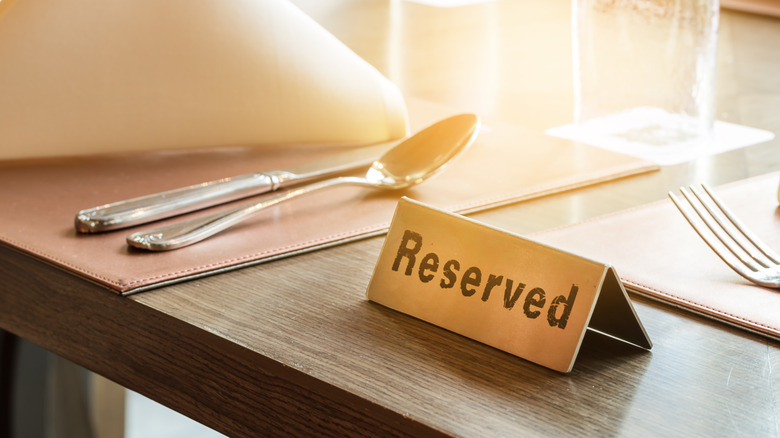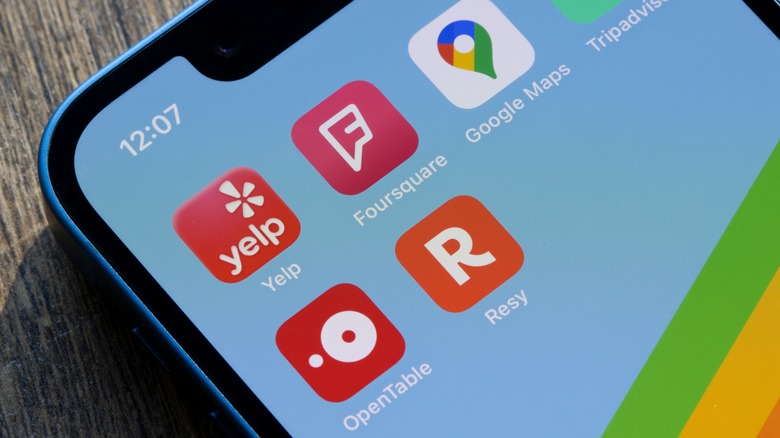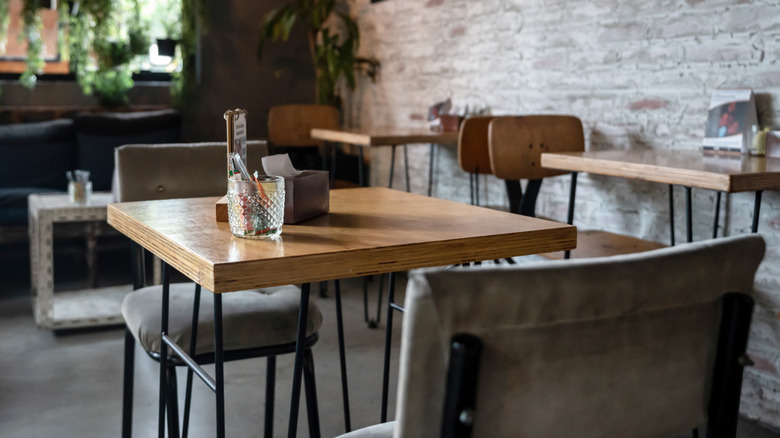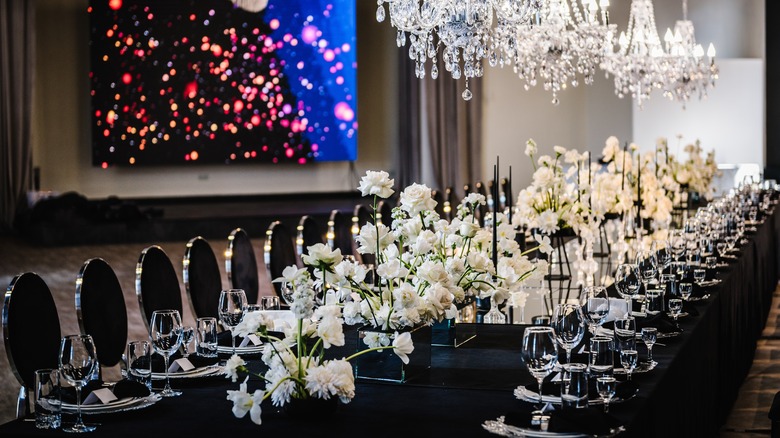Why Some Restaurants Are Opting Out Of Reservation Culture
For seemingly as long as anyone can remember, restaurants have featured reservations. Sure, a fast food place won't have them, but they're so ingrained in the restaurant experience that we don't even think about them. In recent years, though, more and more restaurants have moved away from reservation culture, and the reasons for this are myriad.
Derek Gonzalez, owner and founder of GOAT Hospitality Group, is one of those owners. Gonzalez shared the reasons for his reservations about reservations with Daily Meal, and while he can only speak for his businesses, much of what he's saying echoes broader issues within the restaurant community. According to Gonzalez, it's not just that a reservation system requires specific staff to schedule and maintain but that it can lead to increased inefficiency, lost profit, and worse customer service outcomes. Though there are some good reasons to utilize a reservation system, Gonzalez and many owners like him don't feel they outweigh the negatives.
Reservation culture has gotten a lot worse in recent years
While reservations have been present in restaurants for decades, it's difficult to argue the culture around them hasn't gotten worse in recent years. Reservations make sense at particularly high-end restaurants where everyone wants to eat; they can allow an eatery to plan ahead and have a good sense of revenue in a notoriously volatile industry, which is why there are plenty of restaurants in America where getting a reservation is very hard. But the existence of reservation scalpers and reservation trading groups would seem to indicate we may have collectively lost the thread.
For restaurateurs like Derek Gonzalez, it's not even a question of whether to wade into the hassle of reservations; doing so would run directly against his business model. "At [GOAT-owned brand] Pilo's Street Tacos, we don't take reservations because we operate as a quick service restaurant. Our primary goal is to turn tables faster, ensuring that more customers can enjoy our food without long wait times," he says. For a restaurant that likes to maintain what Gonzalez calls a "lively, bustling atmosphere," reservation culture can be counterproductive to its goals.
There are other problems with it, too
However, according to Derek Gonzalez, the reasons for shying away from reservation culture are more universal than those that apply to his specific business model. There's the financial and time cost of having an employee dedicated to dealing with reservations, of course, but there's also the fact reservations can interrupt the flow of business itself and make life harder for restaurant workers. "Reservation culture can create additional stress for waitstaff, chefs, and other employees. They have to manage varying numbers of guests arriving at specific times, which can disrupt the flow of service and kitchen preparation," Gonzalez tells Daily Meal.
This additional stress can, in turn, lead to poorer customer service. Certain industry groups may find reservations profitable (OpenTable makes money every time you reserve a table through them), but restaurants themselves might not enjoy having to deal with them nearly as much.
Reservation culture can also lead to situations where restaurants plan for customers who then don't show up — a key reason more restaurants are adopting reservation cancellation fees. Not only can this cause restaurants to miss out on business by holding tables empty that otherwise could've gone to walk-in customers, but according to Gonzalez, it can also disrupt efficient restaurant operations when customer flow doesn't proceed as planned.
There are some good alternatives
In his role, Derek Gonzalez sees drawbacks to eliminating reservations. "Some customers prefer the certainty of having a reserved table, and not offering this option might deter them from visiting during peak times," he says.
Restaurateurs are loth to do anything that could cause them to miss out on business, so many eateries might be hesitant to follow Gonzalez's lead. He also points out that reservations allow restaurants to schedule large parties and events that can't effectively be managed as no-notice walk-ins.
Nevertheless, Gonzalez believes the industry would be better off changing how it operates concerning reservations. He advocates a hybrid approach wherein reservations aren't completely limited but are just part of the overall business model, saying, "combining reservations with walk-ins and using technology for real-time wait updates and virtual queueing would improve customer experience."
A flexible system like the one Gonzalez describes would seem to satisfy both customers and restaurants. That said, you probably shouldn't expect Chicago's Alinea to adopt the practice anytime soon.



